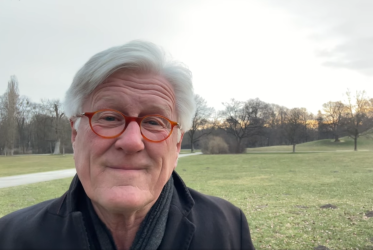As we continue our 16 Days Against Gender-based Violence, one of the fundamental messages that must be heard is to break the cycle of remaining silent. This is critical because at so many levels in our society we are repeatedly being told to be quiet.
“Hush!” "Shhh!" We hear these words from very early on in our lives. Parents do everything in their power to keep their children quiet and to get them back to sleep. In may societies children are raised with the understanding that they should be seen and not heard. We grew up in church where “keeping quiet” was part of the worship experience.
When you think about it just about every segment of our lives reinforced this message: don’t say much or better yet don’t say anything. And then of course that attitude was reinforced by quoting such biblical texts like Job 13: 5 “If only you could be silent! That’s the wisest thing you could do.” Added to that we have old proverbs like “a still tongue keeps a wise head.” No doubt knowing when to be silent can be wise, polite and even desirable.
But what if our posture of silence is not always the right thing to do? How can we discern the time to be silent and the time to speak? Advocating to end gender-based violence means not remaining silent any longer.
These days of activism ought to agitate all who have been silent about violence that has been meted out to them to break the silence which has enveloped them. For that to happen it means that women have to break their silence coming out of the shadow of shame; children's voices must no longer be muted; and even men who have been victimized must have courage to speak up.
Often it is fear that keeps people in silence. The fear of not being believed; fear of being isolated; fear of exposure and the likely consequences resulting from breaking the silence. Fear cripples. But to live in fear is to live imprisoned. That goes against the very essence of the Gospel of the Christ whose mandate echoed that of the Prophet Isaiah, "He has sent me to proclaim release to the captives." (Luke 4: 18)
This campaign seeks to give a voice to those who have remained silent for too long. This campaign calls out to individuals and institutions that have perpetuated a culture of silence so as to maintain the status-quo to repent of this sin. This campaign seeks to draw attention to the need for justice, courage, empathy, confession, forgiveness, reconciliation and yes even celebration.
When the silence is broken it is not just human relationships that are impacted. Breaking the silence also results in spiritual renewal. Breaking the silence now will ensure that the voices of those who have been silent for so long will continue to be heard long after these 16 days are over. May our commitment to this campaign lead us to no longer participate wilfully or unintentionally in the sin of silence.







